Do dogs and cats really need their teeth professionally cleaned? The answer is absolutely yes!
Animals develop tartar and plaque on their teeth just like we do. This tartar and plaque is formed by food particles and bacteria. The bacteria spreads to the gums and causes inflammation which is called gingivitis. As the bacteria spread it works its way deeper and deeper around the teeth and causes periodontal disease which eventually causes loss of the teeth. The best way to prevent dental disease is regular brushing of your pets teeth and special dental treats. Regular cleaning of the teeth under general anesthesia’s is also needed. The most common problem with you pets teeth is periodontal disease which can start as early as 4-5 years of age. Only by cleaning below the gum line can you slow this process down and only by cleaning under anesthesia can you do this.
Reason 1: Overall health and longevity of your pet
Bacteria from dental disease can get into the blood and travel to important organs such as the heart, liver and kidney. These conditions will shorten your pets life span and will need costly and extended treatment. It is better to get your pet into your veterinarian for a full dental cleaning regularly than lose precious time with your beloved companion.
Reason 2: Bad breath
When periodontal disease progresses halitosis (bad breath) comes along with it. If the teeth are really diseased, you can often smell the breath from across a room! We all love to cuddle with our fur babies,, but it becomes difficult when the smell turns your stomach. Get those teeth cleaned!
Reason 3: Pain
Periodontal disease is very painful for your pet. Sore, inflamed gums and loose teeth can make it hard for your pet to eat. Abscesses and infections cause chronic long term pain that your pet may not even tell you about. Often the disease is slowly progressive so they get used to the pain and continue to eat and act overall normal. What you may notice is that they become head shy-avoiding touch to the mouth or face because it hurts. Sometimes they will just want to eat soft food instead of the dry food they always loved. Often after a dental is performed on a pet with a painful, diseased mouth and the infected teeth or infection are removed, the pet is suddenly playful and more energetic. This is a clear indication that the teeth were the painful and affecting your pets quality of life.
Reason 4: Tooth loss
Once bacteria get under the gum, the tissues supporting the teeth and the bone are slowly eaten away. Abscess can form at the roots of the teeth. These teeth will become loose and even fall out. This is painful and it is not uncommon for a pet to then need multiple extractions when getting their teeth cleaned. Some pets end up with no teeth remaining if its is left too late. Getting prophylactic dental cleanings starting early in life and keeping up with regular routine dental care will prevent this from happening.
We brush our teeth twice a day and we need regular professional dental cleanings. Your furry friends also need regular brushing and dental treats and regular professional dental cleaning. Every pet is different but in general, small breed dogs will need a full anesthetic dental yearly and even every 6 months as they get older. Larger breeds may need dentals only every few years. The general recommendation is to get a dental done on your pet yearly combined with at home dental care in between. At home dental care includes dental treats and tooth brushing. It is important to get your pet in to your veterinarian for annual check ups to assess the teeth and decide on the best plan for your pets dental care. Don’t ignore what could be a hidden but serious problem.
Established in 1981, Palm City Animal Medical Center is dedicated to providing the best possible care for your pets. With focuses on compassionate care in surgery, physical therapy and rehabilitation, preventative medicine, extensive diagnostics, and emergency service, Palm City Animal Medical Center combines exceptional medical care with a caring philosophy for pets and their owners. For more information, call 772-283-0920, visit www.palmcityanimalmedicalcenter.com or find us on Facebook at www.facebook.com/PalmCityAnimalClinic.

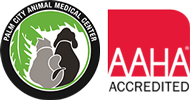
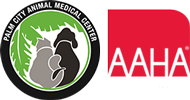
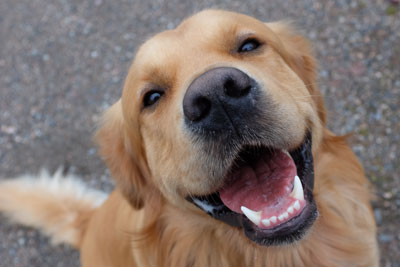
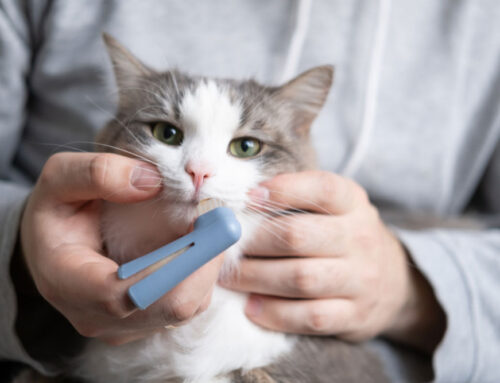


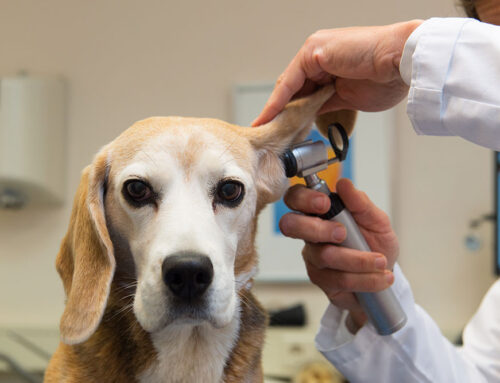
Leave A Comment